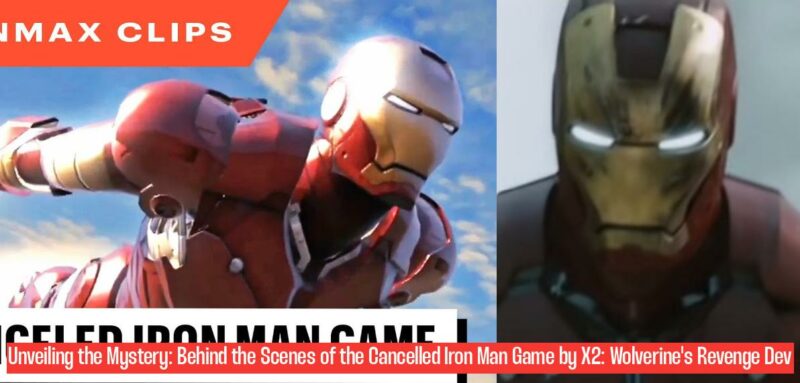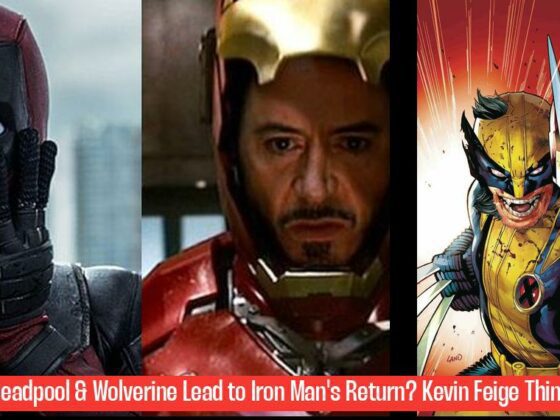A Lost Iron Man Game: The Untold Story Behind a Cancelled Marvel Project
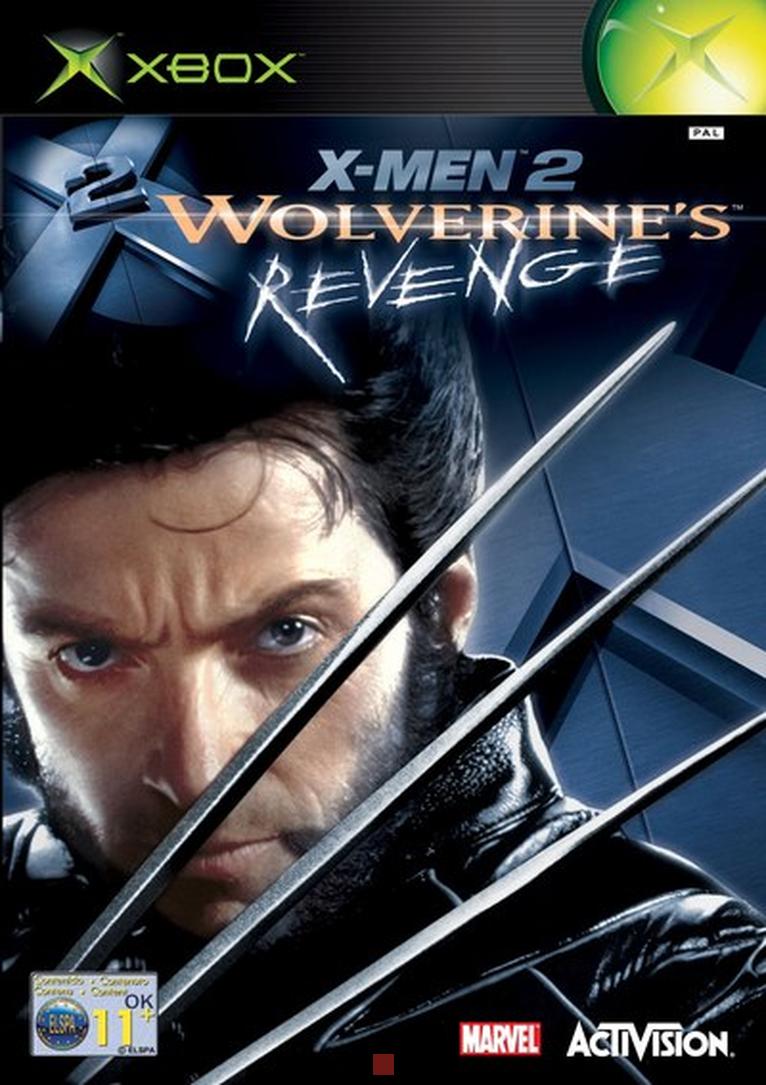
Iron Man, the iconic superhero known for his wit, ingenuity, and technologically advanced armor, has been a staple of the Marvel Universe for decades, captivating audiences in comics, movies, and video games. While many Iron Man games have graced our consoles and PCs, a fascinating lost project emerged from the shadows, revealing a glimpse into a cancelled Iron Man game developed by GenePool Software, the studio behind the beloved X2: Wolverine’s Revenge.
The revelation came from Kevin Edwards, a former developer at GenePool Software, who took to Twitter (now X) to share never-before-seen screenshots and details of the cancelled project. This Iron Man game, envisioned in 2003, was a promising endeavor that unfortunately never saw the light of day. The project, shrouded in secrecy, remained hidden from the public eye until Edwards’s revelations, offering a tantalizing glimpse into what could have been.
The Iron Man game was planned as a tie-in to the Marvel Universe, leveraging the popularity of the superhero at the time. While the specifics of the game’s plot and gameplay remain shrouded in mystery, the screenshots released by Edwards reveal a glimpse into its visual style and potential gameplay mechanics. The visuals, though dated by today’s standards, showcased the distinctive angular design of Iron Man’s armor, hinting at a game that captured the essence of the character.
Edwards’s revelations sparked a wave of interest and nostalgia among fans, prompting many to wonder why this promising project was ultimately cancelled. The reasons behind the game’s demise remain a mystery, but several factors could have contributed to its untimely demise. The gaming landscape in the early 2000s was rapidly evolving, with new technologies and platforms emerging at a breakneck pace. GenePool Software, a relatively small studio, may have faced challenges in keeping up with these rapid advancements, potentially leading to the cancellation of the Iron Man project.
Read Also : Is the Young Avengers Movie Still Happening in the MCU?
Another contributing factor could have been the studio’s focus on other projects. GenePool Software, known for its work on X2: Wolverine’s Revenge, may have prioritized other titles, leading to the Iron Man game being put on the back burner and eventually cancelled. The game’s cancellation, while disappointing for fans, serves as a reminder that in the world of game development, projects are often shelved due to a confluence of factors, ranging from technical limitations to shifting priorities.
Exploring the Iron Man Game’s Cancellation: A Look at the Factors at Play
The Uncertain Fate of the Iron Man Game: A Deeper Dive
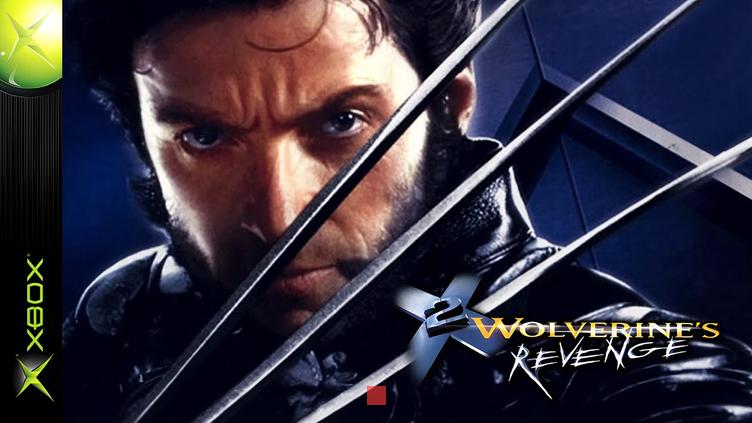
The cancellation of the Iron Man game, while a disappointment for fans, provides a glimpse into the complex and often unpredictable world of game development. The reasons behind the project’s demise remain shrouded in mystery, but several factors could have contributed to its untimely end. The gaming landscape in the early 2000s was undergoing a period of rapid evolution, with new technologies and platforms emerging at a breakneck pace. Studios like GenePool Software, while talented, faced challenges in keeping up with these advancements, which may have contributed to the cancellation of the Iron Man project.
Financial constraints could have also played a role. The development of a video game, especially one based on a popular franchise like Iron Man, requires significant financial investment. GenePool Software, a relatively small studio, may have faced budgetary limitations, making it difficult to sustain the development of the Iron Man game, ultimately leading to its cancellation.
The emergence of competing projects could have also added pressure to the Iron Man game. As the gaming landscape became increasingly crowded, studios were faced with a competitive environment, demanding that they prioritize projects with the highest potential for success. GenePool Software, with its limited resources, may have decided to focus on other projects that offered a greater chance of commercial success, leading to the cancellation of the Iron Man game.
The cancellation of the Iron Man game serves as a reminder that in the world of game development, not every project reaches the finish line. The confluence of factors, ranging from technical limitations to shifting priorities and competition, can lead to the demise of even promising projects.
Read Also : Xolo Maridueña Excited for Anime Influence in Besouro Azul Series
The Legacy of the Cancelled Iron Man Game: A Glimpse into the Past
The revelation of the cancelled Iron Man game, though bittersweet, offers a fascinating glimpse into the history of video game development. It reminds us that the path to success is often paved with cancelled projects, abandoned ideas, and unrealized dreams. The game’s cancellation, while disappointing, also serves as a reminder that the world of game development is a dynamic and ever-evolving space, filled with both triumphs and failures.
The cancelled Iron Man game, though never released, leaves a lasting impact on the gaming community. It serves as a testament to the creativity and ambition of developers who strive to bring our favorite characters and stories to life. It also highlights the challenges and complexities of game development, where even the most promising projects can fall victim to a confluence of factors.
The legacy of the cancelled Iron Man game lives on in the form of the screenshots released by Kevin Edwards. These images, while offering a glimpse into what could have been, also serve as a reminder of the passion and dedication that developers pour into their work. They encapsulate the spirit of innovation and creativity that drives the video game industry, even in the face of setbacks.
The cancellation of the Iron Man game, while a disappointment for fans, serves as a reminder that the world of video games is a vibrant and ever-changing landscape. It is a space where dreams are realized, ambitions are pursued, and sometimes, even the most promising projects are left unfinished. However, the legacy of these cancelled projects continues to inspire and influence the gaming community, reminding us that even failure can lead to innovation and progress.
Iron Man in the Gaming World: A Look at the Legacy
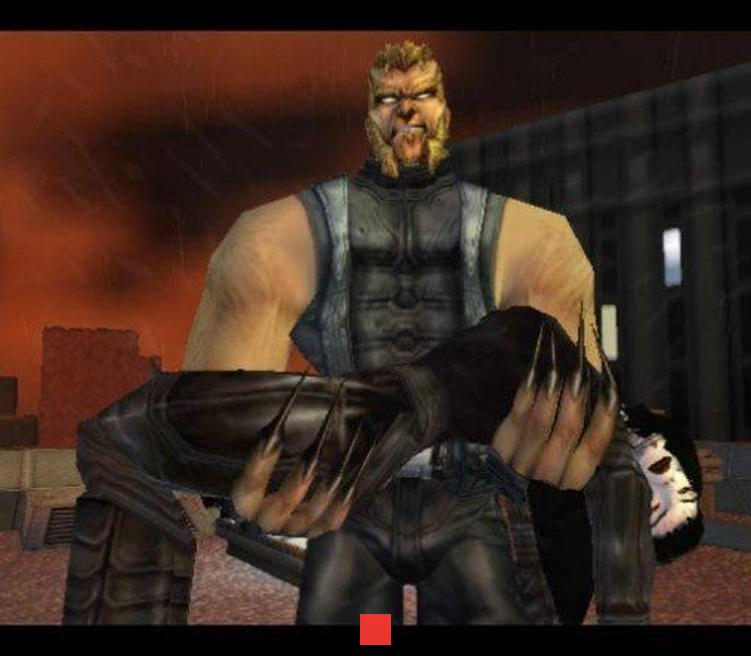
Iron Man has been a popular figure in the gaming world, appearing in numerous titles across various platforms. While the cancelled Iron Man game from GenePool Software never saw the light of day, other Iron Man games have left a lasting impact on the gaming community. These titles, ranging from arcade titles to console games, have captured the essence of the character, allowing players to experience the thrills of soaring through the skies in Iron Man’s iconic armor.
One of the most notable Iron Man games is “Iron Man” released in 2008, developed by Sega. The game, based on the first Iron Man film, allowed players to control Tony Stark as he navigated a variety of missions, battling enemies and utilizing Iron Man’s arsenal of weapons and abilities. The game received positive reviews for its action-packed gameplay and faithful adaptation of the character’s abilities.
Another notable Iron Man game is “Iron Man 2” released in 2010, developed by Sega. The game, based on the second Iron Man film, expanded upon the gameplay of its predecessor, offering a more robust combat system and a wider variety of missions. The game received mixed reviews, with some praising its action and visuals while others criticized its repetitive gameplay and lack of depth.
The legacy of Iron Man in the gaming world continues to thrive. With the recent release of “Marvel’s Avengers,” a superhero action-adventure game featuring Iron Man as a playable character, the character’s presence in gaming remains strong. These titles, along with the cancelled Iron Man game, serve as a testament to the enduring popularity of the character, and the potential for exciting and engaging Iron Man games in the future.
While the cancelled Iron Man game from GenePool Software remains a tantalizing lost project, the legacy of Iron Man in the gaming world continues to thrive. These games, ranging from the classics like “Iron Man” (2008) to the more recent “Marvel’s Avengers,” have captured the essence of the character, allowing players to experience the thrills of soaring through the skies in Iron Man’s iconic armor.
The future of Iron Man in the gaming world remains bright. With the character’s enduring popularity and the continued evolution of game development, we can expect to see more exciting and innovative Iron Man games in the years to come. These games, while honoring the legacy of the character, will also push the boundaries of what is possible in the gaming world, offering players new and immersive experiences that capture the spirit of Iron Man.
What is the untold story behind the canceled Iron Man game?
The untold story reveals a cancelled Iron Man game developed by GenePool Software, the studio behind X2: Wolverine’s Revenge, as shared by former developer Kevin Edwards.
When was the Iron Man game envisioned, and what details were revealed about it?
The Iron Man game was envisioned in 2003 as a tie-in to the Marvel Universe, leveraging the superhero’s popularity. While plot and gameplay specifics remain unknown, screenshots released by Edwards showcased the visual style and potential gameplay mechanics.
What factors could have contributed to the cancellation of the Iron Man game?
The cancellation could have been influenced by the rapidly evolving gaming landscape in the early 2000s, with new technologies emerging. GenePool Software, a small studio, might have struggled to keep up with advancements. Additionally, the studio’s focus on other projects, like X2: Wolverine’s Revenge, could have led to the Iron Man game’s cancellation.
How did Kevin Edwards’s revelations about the canceled Iron Man game impact fans?
Edwards’s revelations sparked interest and nostalgia among fans, offering a glimpse into what could have been. Many fans were left wondering about the potential of the promising Iron Man project and why it never came to fruition.
